You never really know what you’re capable of until your backpack becomes your whole world.
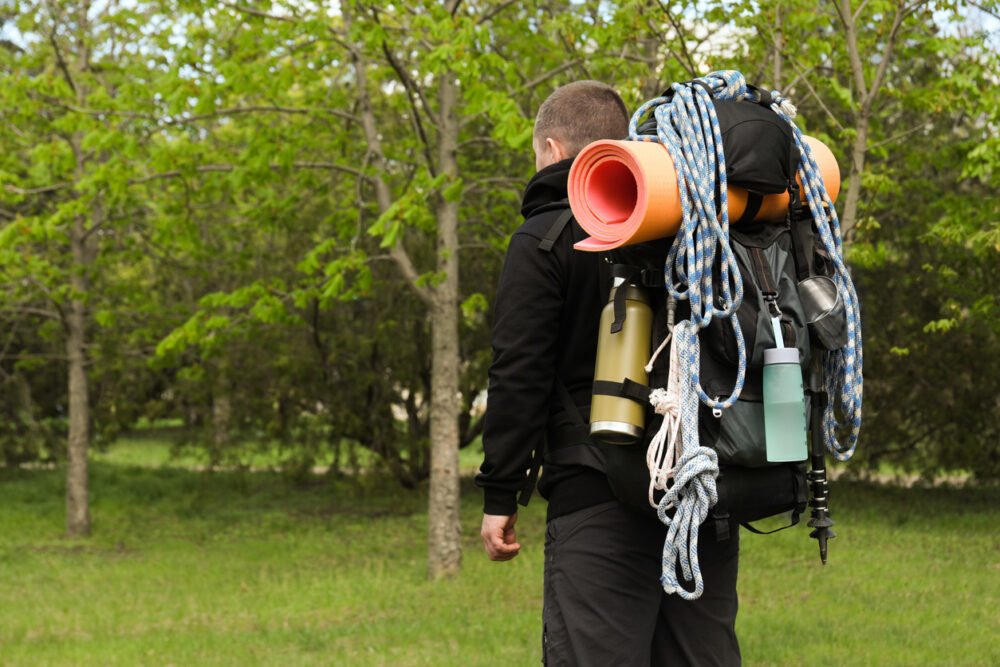
Trading in closets for zippers and comfort for convenience flips a switch in your brain. Suddenly, the stuff you thought you needed fades into the background, and the old, useful skills you haven’t tapped into in years start to resurface. There’s something about living light and mobile that reminds you how resourceful you actually are—without needing apps or a closet full of gear.
This kind of minimalist lifestyle forces you into problem-solving mode more often than you’d expect. You get creative, adaptable, and scrappy in the best way possible. These are the kinds of skills your grandparents would be proud of—skills that get rusty in modern life but shine under the pressure of constant movement. Living out of a backpack doesn’t just change your perspective; it brings parts of you back to life that you didn’t even realize had gone quiet.
1. Packing smart without overthinking it.
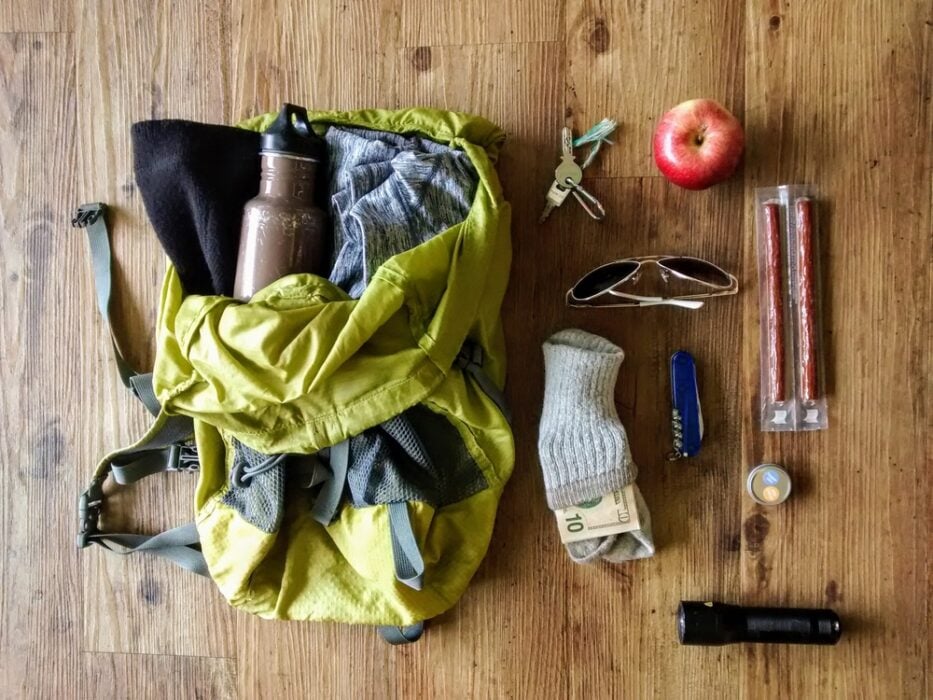
When you’re living out of a backpack, overpacking becomes your worst enemy. You quickly learn how to make tough choices about what actually matters. That nice-to-have hoodie? It’s staying behind. Those bulky shoes? Out. You start thinking in terms of weight, function, and versatility. Packing becomes less about fashion and more about making every item work overtime. A scarf turns into a blanket, a pillow, or a makeshift bag. You stop bringing backup versions of anything because you know you’ll figure it out if something breaks.
Eventually, you develop an almost sixth sense for packing. You fold and roll like a pro, and everything fits just right, as stated by Mike Fink of In4Adventure. There’s no more sitting on your bag or trying to wrestle with zippers. You remember how to plan ahead and anticipate needs without panic. It’s not just about saving space—it’s about feeling in control. Even when everything you own is strapped to your back, you feel lighter because you know exactly what’s with you and why.
2. Cooking with whatever you’ve got.
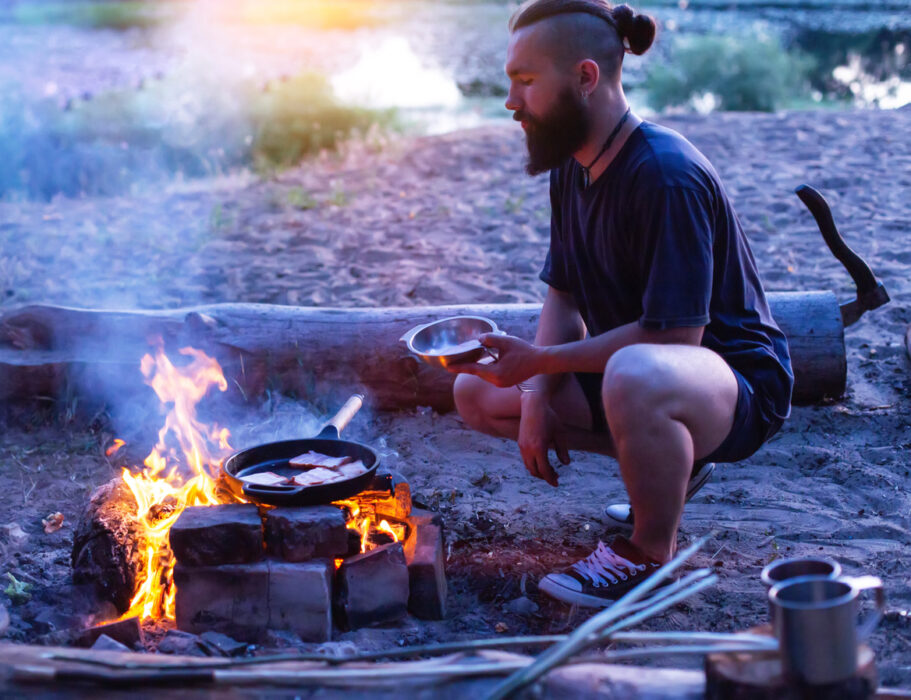
You stop caring about exact measurements and start caring about whether it tastes halfway decent. One pot, one knife, maybe a spoon if you’re lucky—and somehow, meals still happen. You improvise with street market ingredients or that dusty package of lentils you found in the hostel pantry. Suddenly, you remember how to season by instinct and combine odd things that just work. Spaghetti with peanut butter and chili flakes? Don’t knock it until you’ve lived out of a backpack for a month.
The coolest part is how cooking becomes less of a chore and more of a quiet creative moment, as reported by Ramia of Medium.com. It’s not about perfection. It’s about making something warm and decent with whatever’s in front of you. This scrappy approach to food reminds you that you don’t need a full kitchen or 47 spices to survive—or enjoy a meal. It’s a skill that sticks with you, even when you’re back home staring at a stocked fridge.
3. Fixing stuff instead of replacing it.
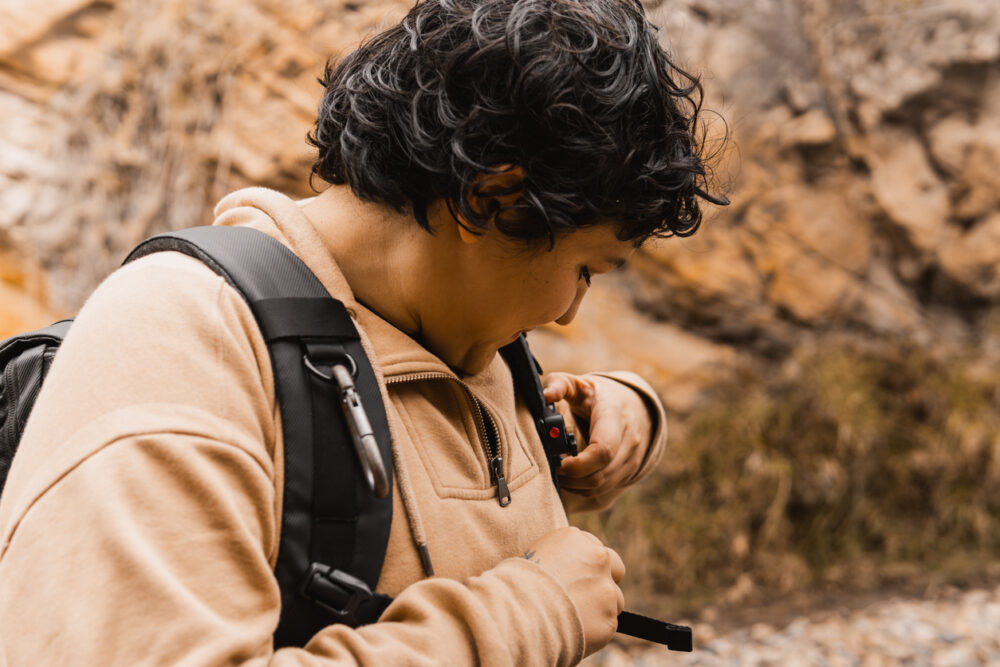
Zippers break. Backpack straps tear. Your only pair of pants rips on a rusty nail sticking out of a bench in Croatia. You can’t just toss things out and replace them when you’re halfway through a 12-hour bus ride or deep in the jungle. So you fix it—clumsily at first, then with growing confidence. You start carrying a tiny sewing kit and using dental floss as emergency thread. You remember that patches are kind of cool and that duct tape really can solve 80% of your problems.
More importantly, you stop being afraid to try. Fixing things teaches you patience and a weird kind of pride, as per authors at A Skeptic’s Path To Enlightenment. You start to enjoy making something work again, even if it’s a little ugly. You remember that being resourceful beats being reliant. Once you tap into that mindset, it stays with you. Back home, you might still patch that shirt instead of tossing it—just because you know you can.
4. Navigating without digital crutches.

When your phone dies at the worst time—or when the signal vanishes in the middle of nowhere—you remember that your brain is a GPS, too. You start paying attention to landmarks, street names, and the position of the sun. You ask strangers for directions in broken phrases and mime your way through complex turns. And you actually get where you’re going. It’s not always smooth, but it works.
The cool thing is how your confidence grows. You trust your instincts again. You remember how to stay calm, observe your surroundings, and figure out the next move without depending on an app. It’s liberating in a strange way. Even when you have a map again, part of you keeps practicing the skill—just in case. Living out of a backpack reminds you that your brain can still handle a little disorientation and find its way back.
5. Sleeping anywhere without complaining.

You become the kind of person who can fall asleep on a park bench, a bumpy overnight train, or a hostel bunk next to a snorer with sinus issues. You stop obsessing over pillows and start adapting to whatever horizontal surface is available. You learn to roll up your jacket, block out light with a shirt, and tune out background noise like a Jedi. It’s not about comfort—it’s about getting enough rest to function the next day.
The thing is, your body adjusts faster than you’d think. You stop being picky and start being grateful. That saggy mattress? Way better than last night’s airport floor. Your expectations shift, and with them, your sense of control. Sleep becomes less of a ritual and more of a reset button. You carry that resilience with you long after your trip ends—falling asleep on your own couch has never felt more luxurious.
6. Making fast friends in unexpected places.

You learn to strike up conversations in hostel kitchens, on crowded buses, and while waiting in immigration lines. You drop the formalities because there’s no time for awkward small talk. You bond over shared snacks, missed trains, and bad directions. There’s something about knowing you’ll probably never see this person again that makes you more open, more curious, more willing to share and listen.
It reminds you how simple connection can be. You don’t need lifelong history or perfect conditions to have a meaningful chat. You just need to be present and a little brave. These quick friendships might only last a night, but they often stick in your memory for years. You carry little pieces of those moments with you—reminders that the world isn’t as lonely as it sometimes feels. That skill of reaching out, even briefly, stays with you. It becomes second nature, even in everyday life.
7. Planning ahead while staying flexible.
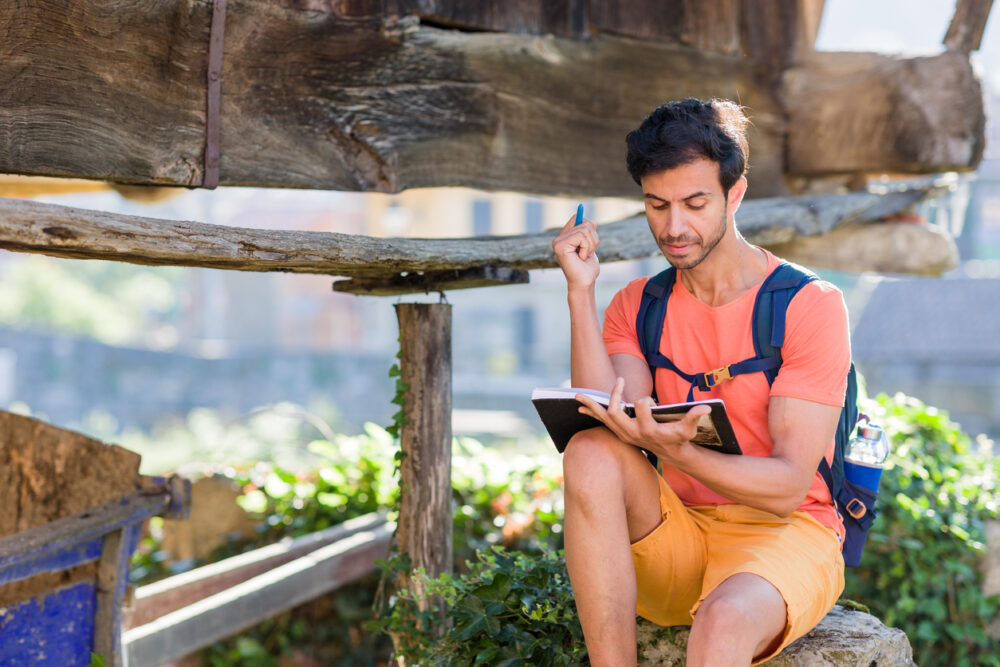
You figure out quickly that having no plan is chaos, but having a rigid one is a trap. So you find the sweet spot: loose plans with wiggle room. You check train schedules, book beds a few days in advance, and keep an eye on the weather. But you’re also ready to shift everything when something better—or cheaper—comes along. You remember how to think ahead without being married to your plans.
It’s a skill that sharpens your decision-making. You become better at prioritizing, adjusting, and letting go. That flexibility seeps into the rest of your life. You stop panicking when things change. You start expecting them to—and adapting quickly. Backpack living teaches you that having a plan is smart, but clinging to it too tightly is a setup for frustration. It’s a balancing act, and once you’ve mastered it, it sticks with you far beyond your last hostel check-out.
8. Stretching money like a pro.

Every dollar counts when it’s covering both dinner and your bed for the night. You start tracking every expense, saying no to tourist traps, and finding joy in the cheapest bowl of noodles in town. You skip cabs and walk. You barter without shame. You find ways to stretch a small budget across an entire country—and somehow still have a great time. It’s not about deprivation. It’s about being intentional.
You also get creative. Free walking tours, cooking your own meals, sleeping in airports—it all becomes normal. You realize that most of your favorite travel memories didn’t cost much. That kind of frugal creativity stays with you. Back home, you look at spending differently. You question purchases. You notice waste. You know how to live well without blowing through your cash, and that’s a powerful skill in any lifestyle.
9. Trusting your gut without hesitation.

When you’re alone in a new place, your instincts get loud—and you learn to listen. Something feels off about that alleyway? You turn around. A local warns you subtly with their body language? You pay attention. You don’t always know why you’re uneasy, but you trust that feeling. And most of the time, it serves you well. You become more alert, more discerning, more in tune with your surroundings.
This isn’t about paranoia. It’s about confidence in your inner compass. You stop second-guessing every little decision and start trusting your ability to make the right call quickly. That gut-level decision-making sharpens with every new city, every long bus ride, every dodgy situation you avoid. And once you’ve practiced that kind of internal trust on the road, it doesn’t leave you. It becomes a part of how you navigate everyday life back home, too.
10. Embracing boredom without needing to be entertained.

When you’re stuck on a train for nine hours or waiting out a storm in a remote village, you learn to sit with boredom. No endless streaming, no mindless scrolling—just you, your thoughts, and maybe a half-charged Kindle. And weirdly, it’s kind of peaceful. You start people-watching, journaling, or just staring out the window without needing to do anything.
It’s in those quiet, aimless hours that you rediscover your ability to simply be. You start to think deeper, notice more, and feel less frantic. You remember how to be still without needing constant stimulation. And it’s not just restful—it’s freeing. You stop seeing boredom as something to escape and start seeing it as something to experience. That’s a huge shift in a world that’s always buzzing. Even when you go back to your normal life, that slower pace sneaks into your habits in the best way.
11. Appreciating simple pleasures like never before.
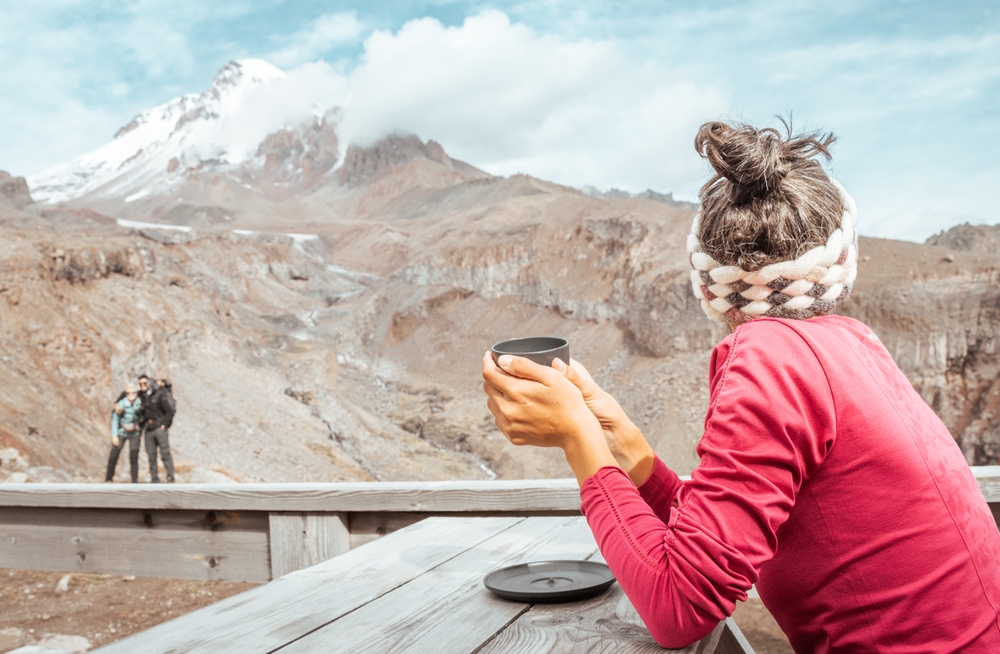
A hot shower after three days of sweating in the jungle. A soft bed that doesn’t creak. A fresh piece of fruit when all you’ve had is instant noodles. These small comforts hit different when you’ve been roughing it. Living out of a backpack strips away luxury, and in the absence of excess, you rediscover how good the basics feel. You don’t just notice them—you savor them.
That appreciation becomes part of your wiring. You stop chasing bigger, faster, more. Instead, you lean into the little moments. A view, a clean towel, a friendly smile—they start to matter more than souvenirs or fancy dinners. Backpack life doesn’t just change how you travel. It changes how you value everyday life. And once you’ve felt that shift, you’ll find yourself smiling over the smallest comforts long after the trip ends.
